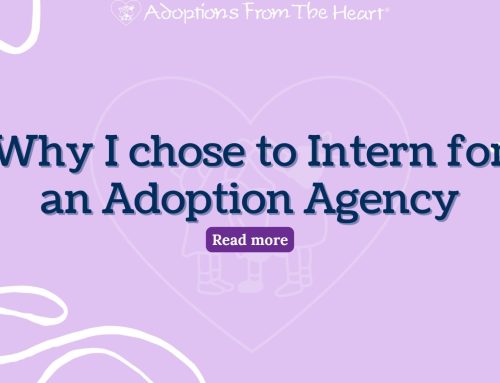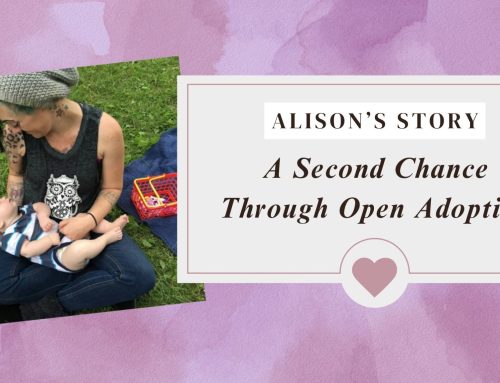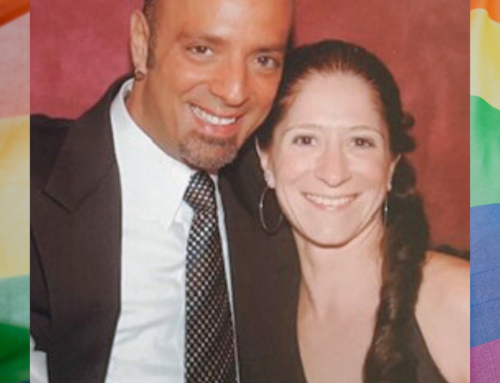By: AFTH Communications Intern, Kevonne Bennett
This week I also had the opportunity to speak with District Supervisor and Adoption Counselor, Nicole Fowler. She is based out of AFTH’s Virginia office and regularly works with all members of the adoption triad. I asked Nicole for her thoughts on the best practices for birth and adoptive parents to foster healthy communication. Read the Q&A below to learn Nicole’s take on the matter.

Nicole Fowler
What do you believe is most important when building a good foundation for open communication?
Nicole: Honesty, building trust through time, courage, respect, and flexibility are the first things that come to mind when building a foundation for effective communication; that sounds like a tall order! I think these actions and qualities are necessary for communication in any relationship. To go deeper, I believe all of this requires self-reflection and a greater understanding of your own weaknesses and strengths in all forms of communication and relationships.
How can adoptive parents and birth parents build trust?
Nicole: Trust is built through open and honest communication; this requires vulnerability and allowing change through time and is the opposite of rigid. As in any relationship/friendship, you build trust over time, and only if both parties are both giving and receptive. Do not make promises you cannot keep, no matter how much you mean it at the moment. Take a deep breath, reflect, talk to your partner if applicable, and talk to a social worker. If you ever do not know, simply say it! “I hadn’t thought about that, but it’s something I will think about and get back to you”; this shows respect for the relationship.
Are there any specific activities you suggest both parties engage in to maintain their relationship?
Nicole: I believe that “catching up” (through letters, emails, texts, etc.) more than once a year is extremely important to any relationship, even just a note to say “hi, thinking of you.” I think sharing some traditions is special for adoptive and birth families. I have an adoptive family who knew that everyone involved loved music, so they created a Spotify account for everyone to add music they’d like to be played for the child! Get creative; you are creating your own special memories and relationships.
What solutions would you suggest for adoptive and birth parents who desire different levels of communication? (ex. A birth mom who wants more frequent contact and the adoptive parent wants less or vice versa)
Nicole: I would ask the party that wants less communication to express to a counselor what is holding them back from accepting more of a relationship with the other family. Are there triggers affecting something unresolved? Would this be harmful to the child or to our own insecurities? Ultimately, let’s think about what we’d be telling our child as an adolescent, teen, adult, when we talk about adoption. How would they feel if open communication requests were not reciprocated? Do not say you are willing to grow in a relationship if it is simply not true. What would have to be the circumstances to grow? I hear so often that it just depends on how it “feels” when meeting the other family; consider humanity and empathy to feel that before placement. If you are not open to openness in adoption, do not go forward as if you are; it can affect the relationship negatively to not explore these things before being involved in an adoption.
How would you suggest adoptive parents and birth parents work through conflict?
Nicole: I would suggest talking to a social worker/adoption counselor and genuinely exploring why there is conflict and coming with an open heart and mind. If there are any “triggers” or anger or rigidness, maybe that needs to be explored with a separate therapist who can explore that with each party.
Do you believe social media is beneficial or harmful to the relationships between the adoption triad?
Nicole: If everyone has been honest, it can be a wonderful tool to share. I have experienced birth families feeling left out if adoptive families share with family and friends that they may not see often, but I’ve also seen wonderful social media relationships as well. There are pros and cons to everything, but I personally do not find a great value in social media as a connector just in general; that is up to us to create in our everyday relationships with our families, friends, and communities.
In what ways could adoptive parents and birth parents maintain communication after their child comes of age?
Nicole: The hope would be that they have already built a relationship to where it would be natural. I think it’s important to respect each other’s relationship with the adult adoptee as valuable. I think it is also important to explore any insecurities surrounding this issue before adopting; your child’s life will be separate from yours, just as yours are separate from your parents on some level. As stated by Angela Tucker in “An Adoptees Manifesto,” “Relationships with our birth parents, foster parents and our adoptive parents are not mutually exclusive.”




